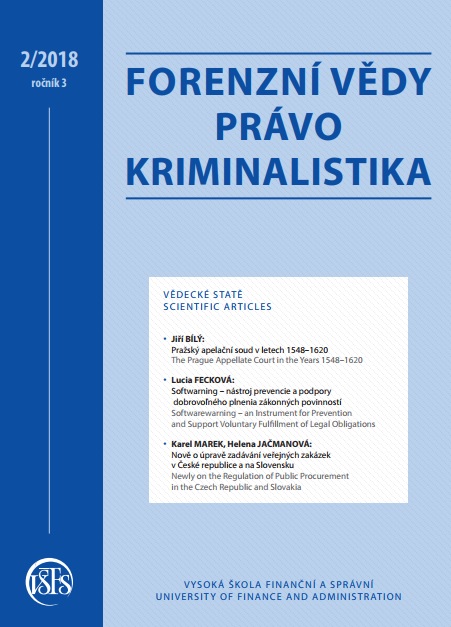Pražský apelační soud v letech 1548–1620
The Prague Appellate Court in the Years 1548–1620
Author(s): Jiří BílýSubject(s): History of Law
Published by: Vysoká škola finanční a správní, a.s.
Keywords: law; appeal; instructions; judicial officer
Summary/Abstract: When Ferdinand I suppressed the revolt of the Czech Estates in 1547, he could break the power of the Estate of Boroughs. He established a new central royal institution – the court of appeal (consilium apellationum in Latin). This court affi rmed or reformed sentences of municipal courts in Bohemia, Moravia, Silesia, Lower and Upper Lusatia. It received appeals from royal towns and landlorďs market towns or townships. It was possible to lodge an appeal against the decisions of municipal courts, but if a person failed the term, he/she could not appeal. It was as new principle the infl uence of the Roman law. The judges of the court of appeal were ten representatives of the Estates in Bohemia (three members of the high nobility, three ones of the gentry, four burgesses) and four erudite lawyers. The court was presided over by the president. The judges including the president were appoint and paid by the king and subordinate to him. The king controlled municipal justice through the court of appeal.
Journal: Forenzní vědy, právo, kriminalistika
- Issue Year: 3/2018
- Issue No: 2
- Page Range: 100-117
- Page Count: 18
- Language: Czech

